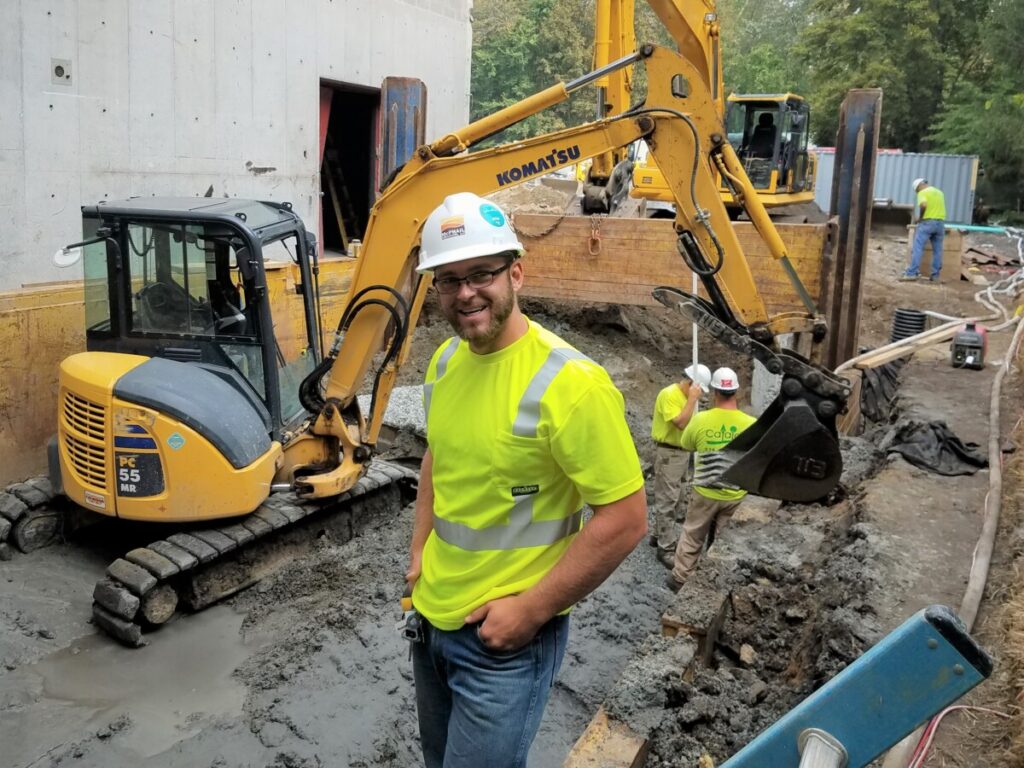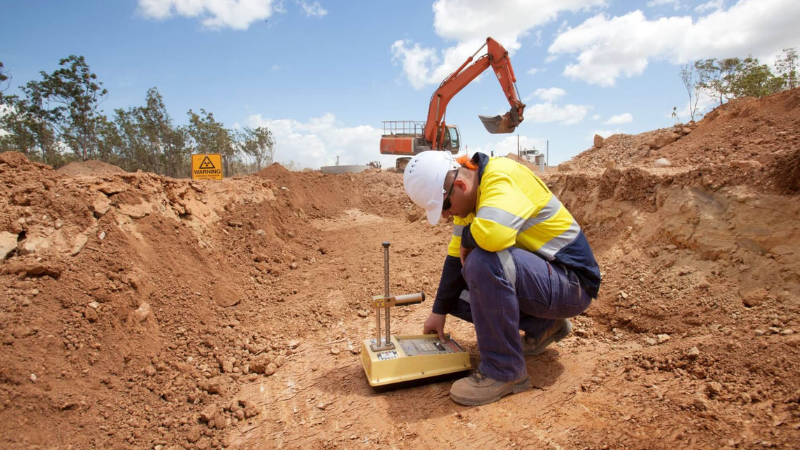Understanding the Comprehensive Duty of Geotechnical Engineers in Ground Examination and Soil Analysis for Construction Tasks
Geotechnical engineers are important to the success of building and construction projects, giving crucial insights through thorough ground investigations and soil analysis. Their expertise in evaluating soil behavior and employing sophisticated screening methods notifies essential choices that promote structural integrity and security.
Duty of Geotechnical Engineers
The essential role of geotechnical engineers in building jobs can not be overemphasized, as they give essential insights into dirt habits and site conditions. These specialists are tasked with analyzing the suitability of the ground for different types of structures, ensuring safety and security and stability throughout the building and construction process. Their know-how includes a wide variety of activities, consisting of site characterization, dirt sampling, and laboratory screening, which are important for determining the mechanical and physical buildings of the soil.
Geotechnical engineers use their findings to develop fundamental layouts that fit load-bearing needs and mitigate dangers related to soil negotiation, slope, and liquefaction security. They play a vital role in recognizing prospective dangers, such as groundwater changes and contamination, which can considerably influence project stability. They work together with engineers, civil engineers, and specialists to make certain that geotechnical factors to consider are incorporated right into the general style and building stages.
Ground Investigation Techniques
Ground investigation techniques develop the foundation of geotechnical design, allowing engineers to acquire a thorough understanding of subsurface problems. These methods are important for evaluating soil homes, determining groundwater levels, and recognizing potential geological dangers.
Typical approaches include borehole exploration, which enables the extraction of dirt examples at various depths, offering vital information for analysis. Additionally, sitting screening methods, such as Standard Infiltration Tests (SPT) and Cone Penetration Examinations (CPT), are employed to assess dirt toughness and thickness directly in the ground.
Geophysical approaches likewise play a substantial duty in ground examinations. Methods such as seismic studies and electric resistivity tomography aid examine subsurface qualities without substantial excavation. geo tech engineering. These non-invasive techniques are especially beneficial in big or sensitive areas where disturbance must be reduced
Furthermore, exploratory trenches can be dug deep into to aesthetically evaluate dirt layers and identify any anomalies. Each of these strategies contributes unique understandings, allowing geotechnical engineers to develop accurate website analyses and notify style choices. In recap, a mix of these ground investigation techniques is essential for effective building projects, making sure safety and security and architectural stability.
Soil Analysis Methods
Dirt evaluation methods are essential for comprehending the chemical and physical properties of soil, which straight affect the style and building and construction of structures and various other frameworks. Various strategies are utilized to assess soil qualities, making certain that geotechnical designers acquire exact information for educated decision-making.
One commonly made use of method is grain dimension analysis, which figures out the distribution of bit sizes within a dirt example. This is essential for classifying dirt kinds and predicting their behavior under lots. One more crucial method is Atterberg restrictions screening, which examines the plasticity and dampness material of fine-grained soils, supplying insights right into their engineering homes.

Field examinations, such as Conventional Infiltration Examinations (SPT) and Cone Infiltration Tests (CPT), offer valuable in-situ data pertaining to dirt stamina and stratification. Collectively, these soil analysis methods form the structure of geotechnical examination, permitting engineers to make effective and safe frameworks customized to the details conditions of the website.
Risk Reduction Techniques
Implementing effective risk reduction methods is crucial for geotechnical engineers to address potential challenges in building and construction projects. These methods are essential in identifying, assessing, and handling threats related to soil problems, site security, and groundwater fluctuations, which can adversely impact project end results.
One primary technique includes carrying out complete site examinations that make use of innovative geophysical strategies and detailed soil sampling. By getting exact data on subsurface problems, engineers can make enlightened choices on layout and building approaches. Additionally, employing predictive modeling tools permits the simulation of various scenarios, allowing designers to visualize prospective troubles and implement preventive steps.
In addition, establishing clear interaction networks among project stakeholders fosters a joint strategy to risk administration. Routine updates and assessments guarantee that all celebrations understand the developing site conditions and can adapt their approaches appropriately.

Impact on Construction Jobs
The effectiveness of threat reduction approaches straight influences the general success of building and construction jobs. Geotechnical engineers play a crucial function in this domain, as their proficiency in ground examination and soil analysis educates vital choices throughout the construction procedure. By properly analyzing soil conditions and blog recognizing potential risks, these experts enable job groups to devise efficient remedies that minimize threats related to ground instability, water infiltration, and other geotechnical difficulties.
The influence of thorough geotechnical evaluation appears in numerous facets of building projects, consisting of cost administration, project timelines, and structural integrity. Early recognition of concerns allows for prompt interventions, reducing costly delays and budget plan overruns. An extensive understanding of site problems boosts the layout and design process, guaranteeing that frameworks are developed to endure environmental stress and potential natural catastrophes.
Ultimately, the contributions of geotechnical designers are integral to the successful execution of building and construction tasks. Their work not only cultivates security and compliance with guidelines but additionally improves the long-term sustainability of structures, ensuring that they do properly throughout their intended lifespan. The partnership in between geotechnical groups and other stakeholders is crucial for attaining optimum outcomes in construction ventures.
Conclusion
To conclude, geotechnical designers do an important function in building and construction jobs with extensive ground investigations and soil evaluations. Their competence in analyzing dirt habits, utilizing numerous examination techniques, and applying danger mitigation approaches significantly adds to the structural integrity and safety and security of developed atmospheres. By collaborating with multidisciplinary groups, these specialists enhance task effectiveness and guarantee conformity with security standards, eventually bring about effective building outcomes and decreased possible dangers.
Geotechnical designers are important to the success of building and construction jobs, giving important understandings via click for more info extensive ground investigations and soil analysis.The essential role of geotechnical designers in building and construction tasks can not be overemphasized, as they give essential insights into dirt behavior and website problems. Their know-how encompasses a vast range of tasks, including site characterization, dirt sampling, and laboratory screening, which are essential for identifying the physical and mechanical residential or commercial properties of the soil.
By precisely assessing dirt problems and identifying potential dangers, these specialists make it possible for project teams to design effective services that lower dangers associated with ground instability, best site water infiltration, and various other geotechnical challenges.
In final thought, geotechnical engineers carry out an essential function in building jobs with extensive ground investigations and soil evaluations.